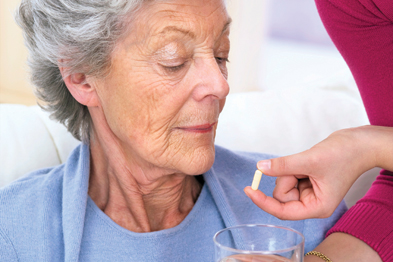Our bodies are home to millions of microorganisms and fungi. Candida is a type of yeast fungus that lives in some kind of quantity in everyone's body. In small quantities, Candida can actually be beneficial. When the Candida grows to a high-level, it becomes unhealthy. High levels of Candida are what we call Candida infections.
Candida Overgrowth Syndrome (COS) happens when there is an uncontrollable growth of the candida yeast in the body. One of the typical signs of these Candida infections is some kind of allergy to certain kinds of food including milk, gluten, or eggs.
The symptoms of Candida infections may vary from person to person. Usually the most common, symptoms include
- Fatigue
- Brain fog
- Digestive issues
- Recurring yeast infections, and
- Joint pain
5 Common Causes of Candida Infections

There are various reasons why yeasts in the body start multiplying uncontrollably. For instance, your diet could promote its growth. Other factors include:
Antibiotic Use
Antibiotics, especially the broad spectrum ones, are used to treat bacterial infections. They’re able to effectively kill the microbes that have caused a disease in the body. However, they also eliminate the good microbes. These good microbes keep the growth of the Candida yeasts in check. When they’re flushed out with the use of antibiotics, the body becomes the perfect breeding ground for diseases.

Diet High in Refined Carbs and Sugar
Candida yeasts need the energy to build their cell walls which are 80% carbohydrates. To do so, they need sugar. Refined carbohydrates are a primary source of glucose. Once these carbohydrates are broken down, they are converted into glucose that is then used by the body for energy. Eating lots of sugary food can cause the blood sugar levels to rise too high.
Oral Contraceptives
Birth control pills cannot cause Candida infections per se. However, when a woman has gone through a series of antibiotic treatments and is consuming a diet that is rich in refined carbohydrates and at the same time taking oral contraceptives, it can promote Candida overgrowth.
Cancer Treatments
Chemotherapy, as well as radiation treatments that fight cancer cells, can also affect the growth of healthy flora. The good bacteria in the body help in keeping Candida in check, Chemotherapy greatly reduces the good bacteria, allowing the Candida to grow.
Diabetes
People with diabetes have high levels of blood glucose in their system. Since Candida is a type of microorganism that relies on sugar, diabetics are more prone to Candida infections.
5 Signs and Symptoms of Candida Infections
Make sure to check in with your doctor when you or your elderly loved one has these symptoms:
Fatigue
Certain factors such as antibiotics affect the levels of good bacteria in the gut. Once those levels decline, colonies of Candida can spread in your body and affect your body’s ability to absorb nutrients. As a result, the gut isn’t able to process and break down the food properly. The malabsorption prevents the body from being “refueled”. In addition, acetaldehyde is a by-product of the metabolism of Candida. It’s also the same chemical that causes hangovers.
Recurring Vaginal Yeast Infections
The constant recurrence of yeast infections is a clear sign of Candida infection. Vaginal yeast infection affects 70% of women. However, men are no exception to yeast infections. Sexual intercourse can cause the spreading of candida. Even if the infection has subsided, there is no assurance that it will not reappear again. Not until you eliminate the overgrowth of Candida in your body.
Mood Disorders
Candida infections can also cause several mood disorders. Mood swings often overlooked by both the doctors and the sufferers. Consequently people don't link moodiness with Candida. Anxiety, mood swings, irritability, and depression are the result of Candida infections. Candida yeast causes the suppression of the hormone serotonin which is a mood booster.
Oral Thrush
The Candida strain that causes vaginal yeast infection can also cause oral thrush. Oral thrush appears as white spots in your mouth. The main cause of it is the use of steroids. This may be transmitted in kids through toy sharing while adults can contract oral thrush through the saliva. Oral thrush, if left without treatment, can spread to other parts of the body such as the lungs and heart valves and can cause serious diseases.
Joint Pain
The metabolic process of the Candida releases another toxin aside from acetaldehyde – uric acid. The uric acid can have a long-term effect on the body. It can damage the joints and tendons. If the uric acid in the body continues to build up, it can cause swelling of joints or arthritis. The pain doesn’t stop until the overproduction of Candida is under control.
Tips in Preventing Candida
Incorporate these simple lifestyle changes to lower the risk of candida:
- Don’t drink antibiotics for too long.
- Take a doctor-approved probiotic supplement regularly or eat naturally lacto-fermented foods.
- Limit sugar intake.
- Eat a balanced and nutritious diet.
- Don’t stress the small stuff.
You'll see from our blog post on preventing Alzheimer's that many of the dietary prevention techniques are the same. That's because scientists are starting to see evidence of a link between Candida infections and people who suffer from Alzheimer's.
How to Treat Candida Infections

There are ways that can help prevent and treat Candida infections. The following natural products have shown to have some effects in fighting Candida overgrowth in the body:
- Probiotics – known to increase the production of the bacteria Lactobacillus that helps the growth of Candida in check.
- Coconut oil – has antimicrobial properties that help fight yeast infections.
- Aloe Vera – known to help prevent and suppress the growth of Candida in the mouth.
- Vitamin C – helps restore the health of the immune system.
- Clove oil – known to have some antifungal properties that can help in treating Candida infections.
Although a healthy diet can help in preventing Candida infections, it isn’t always effective. Candida can affect people of all ages. The most effective way of preventing Candida infections is by treating the underlying causes that might help in the development of infection. Early detection is crucial in Candida infections so that it may be treated before it leads to a more serious complication.
Its recommended that you and your elderly loved one visit a doctor regularly to ensure that both of you are free of any disease or sickness.
If you would like a recommendation about either a naturopathic or regular doctor to help with Candida, please don't hesitate to contact us. You can either go to the 'A Paradise for Parents' home page, call us at 623-295-9890 or email Cam@aparadiseforparents.com
No comments:
Post a Comment